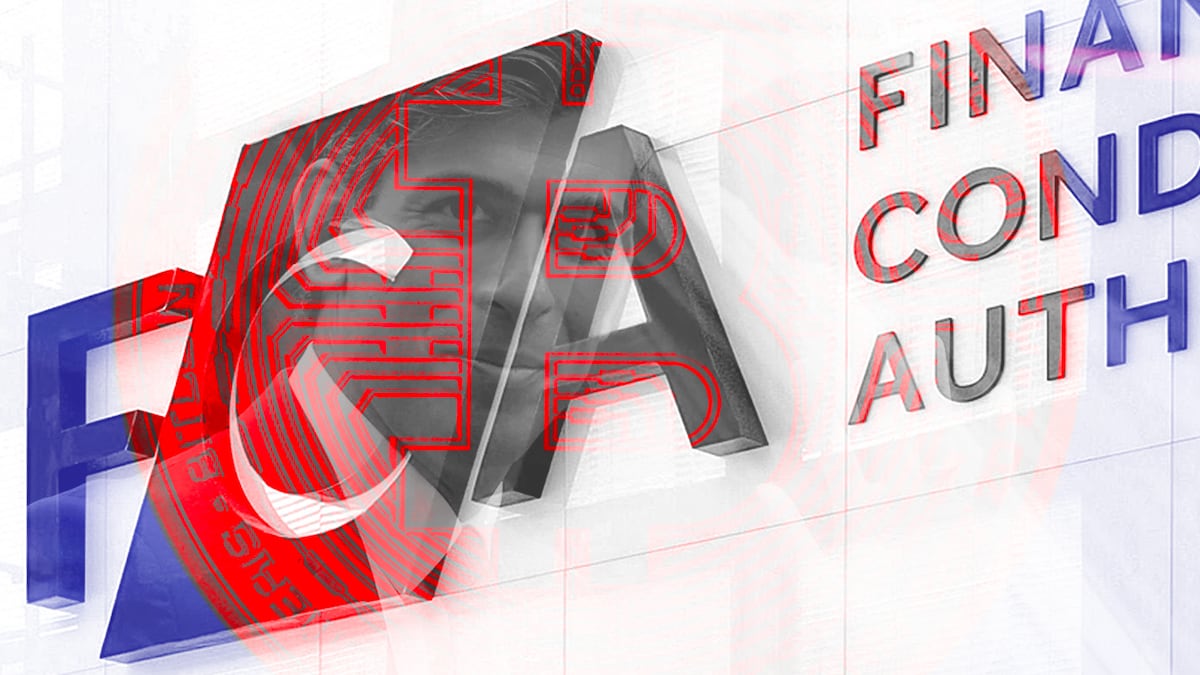If the UK wants to fulfil its ambitions to become a crypto hub, its regulator, the Financial Conduct Authority, needs to revamps its approach.
That’s according to the CEO and founder of one of the UK’s first compliant crypto exchanges, who described to DL News an “arduous” FCA application process that took 18 months and roughly 600 pages in paperwork, and is indicative of an agency ill-equipped to regulate a fast-moving industry.
Jeff Hancock, who founded Coinpass in the UK in 2018, said the FCA asked his firm to provide information in its application that went beyond the scope of typical anti-money laundering and know-your-customer considerations.
The exchange was required to submit its business plan, financial forecasts, future revenue compression expectations, and explanations of its growth metrics from previous years, he said.
‘That we’ve registered 41 crypto firms of all sizes shows these standards are achievable’
— FCA
“Explaining how you are making ‘X’ amount of revenue from ‘X’ number of clients over ‘X’ amount of time to a regulator was an uncomfortable request that has nothing to do with KYC and AML,” Hancock said.
“We require firms in all sectors we supervise to have adequate governance and controls in place to identify, disrupt and report financial crime,” an FCA spokesperson said, when asked about these criticisms. “These standards also apply to crypto.”
The FCA does not grant crypto firms ‘authorised’ status, a classification under which it recognizes financial services providers, investment firms, and consumer credit firms. Instead, it requires crypto firms to register with it under a separate anti-money laundering/counter-terrorist financing regime.
Last year, then-Finance Minister Rishi Sunak announced plans to make the country a crypto hub. As prime minister, his government this month set out a raft of crypto proposals, seeking to “place the UK’s financial services sector at the forefront of cryptoasset technology and innovation.”
We're working to make the UK a global cryptoassets hub. We want to see the businesses of tomorrow, and the jobs they create, here in the UK.
— Rishi Sunak (@RishiSunak) April 4, 2022
Today @JohnGlenUK set out how we are going to encourage crypto investment and technology in UK markets. 👇https://t.co/MdZ5IOLZtH
“I don’t really see that happening without a really innovative approach from the FCA,” Hancock said.
“With some of the changes they want to put in place, maybe over the next two years, we could see crypto going to ‘fully authorised’ status, and it’s just going to raise the bar [on firms] even higher,” he said, adding that a lot of startups would never get off the ground and be driven offshore.
“The FCA has a global reputation for supporting innovative financial service firms and products and we have so far supported 136 firms with new ideas drawing on crypto and DLT (distributed ledger technology) via our Regulatory Sandbox and Innovation Pathways services,” its spokesperson said.
“We have worked closely with the Treasury on their consultation about the future of cryptoasset regulation, and we will continue to work with Government, international counterparts, industry and others to develop a future regulatory regime for cryptoassets.”
NOW READ: UK floats DeFi oversight to mitigate crypto ‘regulatory arbitrage’
A lack of regulatory clarity has plagued crypto in the UK for some time, Hancock said. It also means that firms such as his run the risk of having to roll back or shut down product offerings, sometimes with “only a few months’ warning.”
Australian-born Hancock founded Coinpass after being approached by a group — eventually his co-founders — who wanted to buy Bitcoin, but found no UK-based venue on which to do it.
Coinpass has since grown to serve customers in over 36 countries. It is also among the 41 ‘cryptoasset firms’ on the FCA’s register, which has received at least 300 applications.
Some 85% of crypto firms that have applied for registration under the Money Laundering Regulations were “unable to demonstrate they meet the required, minimum standards,” the FCA said. “That we’ve registered 41 crypto firms of all sizes shows these standards are achievable.”
An example of regulatory ambiguity came when Coinpass notified the FCA of its intention to add stablecoins to its offering. Hancock said the regulator responded by asking the firm to seek a legal opinion on the matter. After approaching a law firm, Coinpass reverted to the FCA, legal opinion in hand.
“Their response was, ‘We have no further opinion’. They didn’t give us a ‘Yes’ or a ‘No.’”
“Their response was, ‘We have no further opinion’. They didn’t give us a ‘Yes’ or a ‘No.’”
The FCA did not respond to this specific allegation.
Hancock said the FCA also questioned Coinpass on transaction records that pertained to its users’ on-chain activity, and not the business’ own. That made it clear to him there was not enough technical, crypto, or blockchain experience inside the FCA.
“We then had the opportunity to educate the regulator on how XRP works,” Hancock said. “We showed the difference between an unhosted user wallet, and an exchange wallet using tagging.”
XRP is the native token of Ripple, a blockchain developed by Ripple Labs.
After the collapse of FTX, regulators have come down hard on crypto firms. Earlier this month, the SEC in the U.S. ordered Kraken to shut down its staking offering to users, and served stablecoin issuer Paxos a Wells notice.
NOW READ: New Congress body to hold first-ever hearing on regulatory ‘attack’ on crypto
“What’s going on in the U.S. right now is everything is a security until deemed otherwise, and three or four agencies vying for control, which is kind of insane,” Hancock said, adding that he would not be looking to do business in the U.S. anytime soon.
Where would he rather go? Home, he says.
“The Australian regulations are really interesting — they segregate their regulatory control depending on the type of business you conduct. You have different licences if you’re an exchange, a wallet provider, building something on a blockchain — a best-fit approach —which I really like.”
